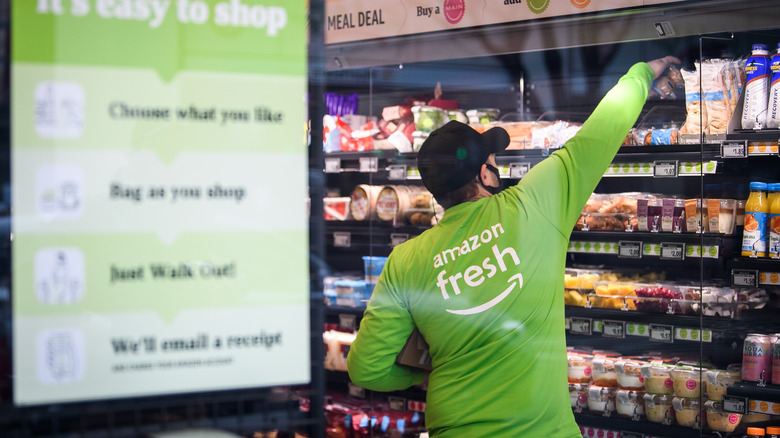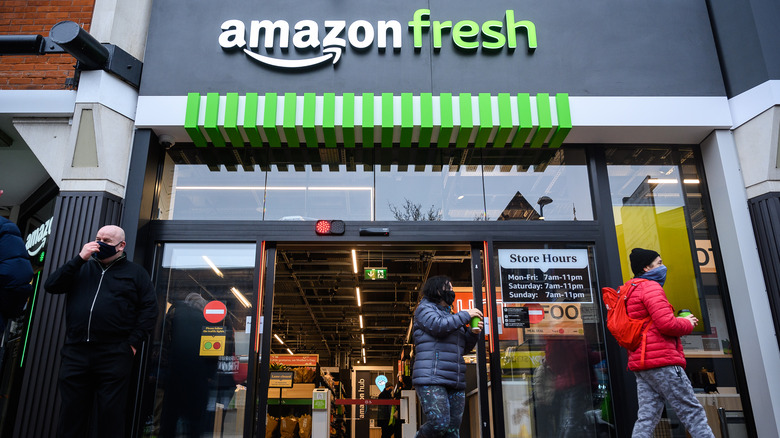Why Amazon Fresh Is Struggling To Fit In With The Grocery Market
Despite its global domination of the online shopping space, Amazon, which is the largest e-commerce company in the world with an annual revenue of over $450 billion (via AxiomQ), has yet to become a dominant force in one of the prominent retail categories: grocery.
The retail juggernaut launched its first Amazon Fresh brick-and-mortar grocery store in Woodland Hills, California in the summer of 2020, promising customers a futuristic shopping experience complete with high-tech Amazon Dash Carts and checkout-line free shopping. The company has since opened 44 Amazon Fresh locations across eight states and the District of Columbia (via Winsight Grocery Business). Additionally, the retailer acquired Whole Foods Market in 2017 in an effort to expand its food retail presence.
However, despite being the second largest retailer in the U.S. — bested only by Walmart (via NRF) — Amazon has struggled to get a foothold in the grocery business according to some industry insiders.
According to Grocery Dive, during a panel session at this year's Groceryshop, financial analysts indicated that Amazon may be struggling to draw customers away from well established brick-and-mortar food retailers like Albertsons, Kroger, Walmart, Aldi, and Target.
Amazon's fledgling grocery operation can't compete with brick-and-mortar juggernauts
One of the e-commerce giant's biggest obstacles to dominating the grocery space is its relatively small presence across the U.S. in comparison to deep-rooted retailers (via Grocery Dive). Although the company has opened dozens of Amazon Fresh locations over the past two years, the number of locations still lags far behind other retail giants that have already established themselves in local communities.
"I think [Amazon wants] to compete where they can't compete, which is local," said Kaumil Gajrawala, managing director of Credit Suisse, during the Groceryshop panel. Analysts also cited Amazon's lack of distinguished branding or popularized private label products for the company's failure to win over loyal customers of other chains.
"There's no unique differentiation towards what they're selling, so it's a very middle-of-the-road concept," noted Rupesh Parikh, senior equity research analyst for Oppenheimer & Co. Although Amazon Fresh has experimented with its own private label products, including a plant-based line that debuted earlier this year (via Grocery Dive), it has failed to distinguish itself compared to companies like Trader Joe's and Target, which have built devoted customer bases for their private label offerings.
Although analysts predict that Amazon will face an uphill battle when it comes to infiltrating the brick-and-mortar grocery market, the company continues to expand its Amazon Fresh operation across the U.S. with no signs of slowing down.

